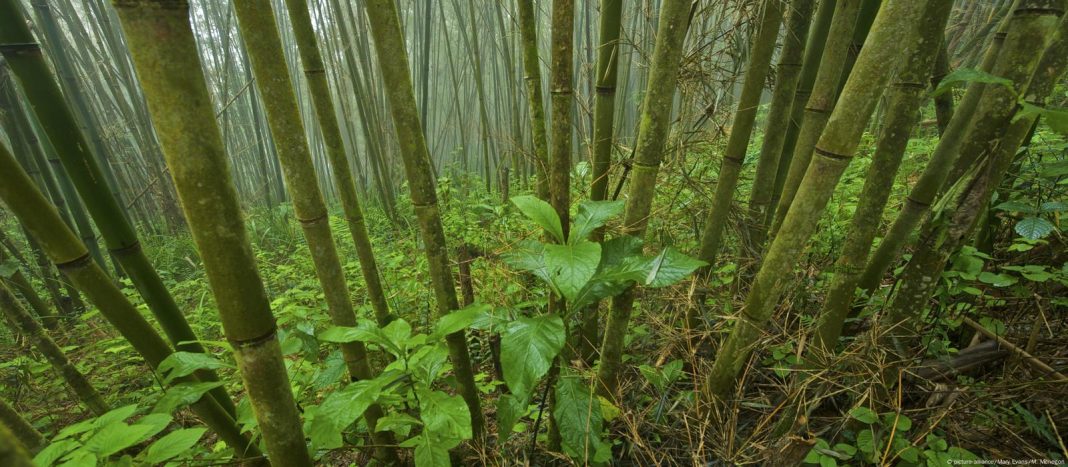Subscription required
In the heart of Kenya, where the land has long been scarred by seasonal floods, a new approach is making waves—not in water, but in resilience. A Chinese-funded bamboo initiative is empowering Kenyan communities to tackle flood risks, creating an era of China-Africa friendship rooted in sustainability and mutual growth.
Building Bridges with Bamboo: A Natural Solution to Flooding
For years, seasonal floods have ravaged parts of Kenya, displacing families, destroying crops, and eroding the land that many call home. Communities along the banks of Kenya’s major rivers, especially in low-lying areas, have faced the brunt of these floods, with little recourse. Yet, where dams and traditional embankments have shown limitations, an age-old resource—bamboo—has come forth as a surprising ally.
Through a strategic partnership with Kenya, the Chinese government has funded a project to plant and cultivate bamboo along vulnerable riverbanks. Bamboo, known for its fast growth and dense root systems, provides a natural solution to soil erosion and helps stabilize the riverbanks, creating a powerful defense against floods. Beyond its environmental benefits, the bamboo project is also opening doors to economic and ecological opportunities.
Voices from the Community: Relief, Hope, and Economic Growth
For local farmers and families affected by floods, this project has been a transformative experience. Samuel Otieno, a resident and farmer in Nyando, one of the areas heavily impacted by floods, shared his relief, saying, “Before this project, every rainy season meant fear and loss. The bamboo not only holds the soil; it holds hope for all of us here.”
The project has also become a source of employment, with community members hired to plant, cultivate, and maintain bamboo groves. “It’s not just about planting bamboo; it’s about planting a future,” said Mary Wanjiku, a mother of three who works with a local reforestation team. “This project has provided me with steady income and an assurance that my children might see a different landscape, one that doesn’t wash away our homes.”
China’s Role in Fostering Sustainable Development
The bamboo project is part of a larger Chinese-African collaboration aimed at promoting sustainable development. Representatives from the Chinese embassy in Nairobi emphasize that this initiative is about more than just flood control; it’s part of a broader commitment to ecological restoration and local empowerment. Chinese environmental experts have worked alongside Kenyan counterparts, exchanging knowledge and supporting local communities to implement the project effectively.
A spokesperson from the Chinese Environmental Cooperation Office stated, “The bamboo project is a practical way to address environmental challenges and economic needs together. Our goal is to share resources, technology, and knowledge that will lead to lasting changes for communities affected by climate challenges.”
This partnership aligns closely with the United Nations Sustainable Development Goals, which prioritize climate action, environmental conservation, and poverty reduction. Through this initiative, China aims to support Africa’s journey toward achieving these goals, reinforcing its commitment to environmental sustainability across the continent.
Beyond Flood Control: The Far-Reaching Benefits of Bamboo
While flood control is the primary focus, the bamboo project brings a wealth of additional benefits. Bamboo is a versatile plant that can be harvested and used in a variety of industries, from construction to textile production. The communities involved in this initiative can now explore new economic avenues, creating bamboo-based products that can be sold locally and even internationally.
Josephine Akoth, a teacher in Kisumu, explains how the bamboo initiative has inspired a “green economy” mindset. “The local youth have been trained to make furniture, craft items, and even eco-friendly charcoal from bamboo. We’re turning what was once a disaster area into a flourishing community, and it’s amazing to see.”
The project has also sparked interest from other African nations looking for sustainable flood prevention methods. With its quick growth and adaptability, bamboo offers an appealing, environmentally friendly alternative that doesn’t rely on heavy infrastructure or resource-intensive construction.
Forging a New Era of Partnership and Sustainability
The success of this bamboo initiative stands as a testament to the positive impact of international cooperation in tackling shared challenges. For many Kenyans, this project represents more than flood relief; it embodies a hopeful vision of China-Africa collaboration that values local communities and the environment.
Reflecting on this project’s potential, Dr. Wang Xian, an environmental scientist involved in the initiative, expressed optimism. “Projects like this lay the foundation for a sustainable future, demonstrating that with the right partnerships, we can create meaningful, lasting impact.”
As communities in Kenya continue to see the benefits, the hope is that similar collaborations can spread throughout Africa, bringing innovative, eco-friendly solutions to pressing issues. This Chinese-funded bamboo project has not only helped Kenyan communities brace against floods; it has forged a path toward a more resilient, economically empowered future for Africa, with China standing as a steadfast partner in that journey.
In the end, the bamboo planted along Kenya’s riverbanks signifies more than environmental restoration—it’s a symbol of the growing bond between China and Africa, a friendship rooted in shared purpose and the desire to see each other flourish. This “new era of friendship” is transforming landscapes and lives, one bamboo grove at a time.





